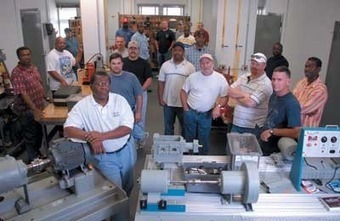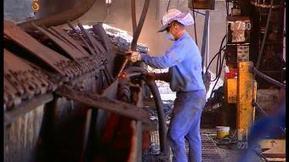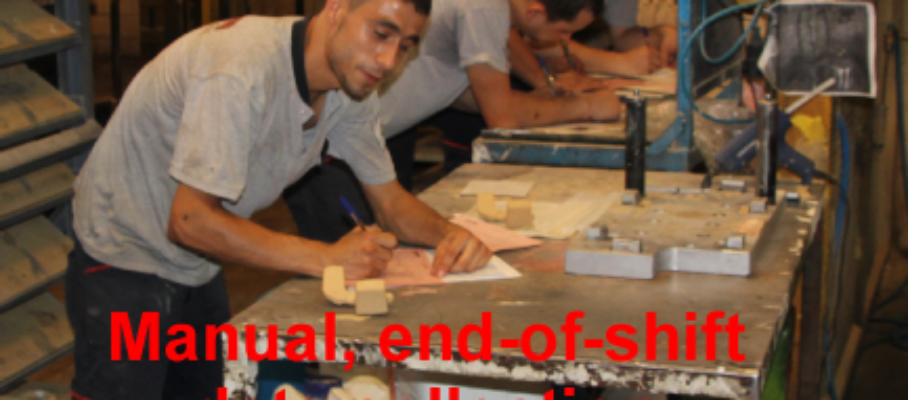Feb 26 2012
Growth in Maintenance’s Share of Manufacturing Employment
Via Scoop.it – lean manufacturing
This article describes a method involving initial testing and extensive training used by an Alabama steel mill to increase Maintenance’s share of its work force to almost 30%.
Jim Peck drew my attention to it on NWLEAN through a post in which he questioned their approach to recruitment as training people who didn’t need it or turning down people with the right skills. This kind of information, of course, is not in the article.
The article points out the growing of share of Maintenance in the work people do in a manufacturing operation as it evolves. Based on the numbers in the article, close to one in four employees of the mill works in Maintenance today, and they are trying to increase this ratio. Steel is an industry that has had enormous productivity increases in the past decades. As they point out in the article, they went from 45,000 employees in the 1940s to 2,100 today, who produce as much.
In today’s labor-intensive manufacturing activities, maintenance’s share of the labor force is on the order of 5%, and I believe we can expect that number to rise. For example, an auto plant that employs 5,000 today may produce the same amount with the same depth of manufacturing with 500 people 25 years from now — if cars are still around in 2037… And, out of these 500 people, 150 to 200 will be in Maintenance, the rest being primarily programmers of automatic machines.
Whether testing is appropriate or not depends on the relevance of what people are tested on. An organization has the right to decide what “qualified” means for its own needs. On the other hand, I find testing inappropriate if there is a hidden agenda.
Many Silicon Valley software companies, for example, subject applicants to “coding interviews,” in which they are tested on such topics as the details of sorting algorithms. A computer science student learns this in college but rarely uses it as a professional programmer, because 90% of the time you need to sort records, you just invoke a sort function without worrying about what is under the hood. As a consequence, this kind of test is an effective way to bias the interviews in favor of recent college graduates and filter the experienced programmers.
Via www.reliableplant.com




Mar 6 2012
Four operators working on a fuselage section
This is a section of a photograph published in the UK’s Guardian on 12/20/2011, showing four operators at work on an aircraft fuselage section.
When you examine the picture, how many do you see actually engaged in modifying the work piece?
Share this:
Like this:
By Michel Baudin • Press clippings 1 • Tags: Lean assembly, Lean manufacturing, Manufacturing